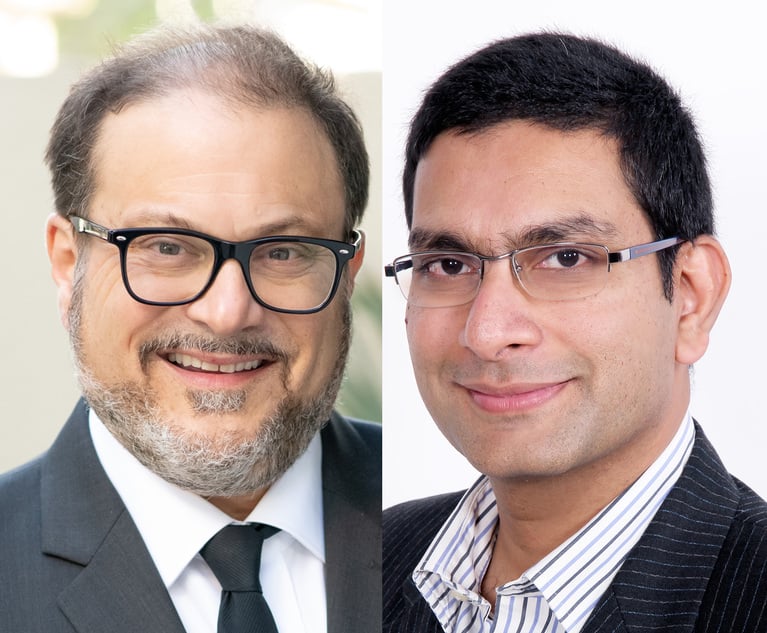How I Made Partner: Cravath's Allison Wein
"Spend the time investing in becoming an expert in your subject matter, keep up with the industry and show through your hard work that you're hungry, resilient and a team player."
October 24, 2019 at 11:04 AM
5 minute read
Allison Wein, Cravath, Swaine & Moore
Office: New York.
Practice Area: Corporate.
Law school and year of graduation: Northwestern University Pritzker School of Law, 2010.
How long have you been at the firm? Eight years.
How long were you an associate at the firm? Seven years.
What is the biggest surprise you have experienced since becoming partner? One thing that does continue to surprise me is the way that new clients who meet you approach you when you're a partner. While I've continued to work with many of the same clients as when I was an associate, I've also had the chance to work with several new clients since becoming partner and I've seen how much trust new clients put in me from the outset of the relationship.
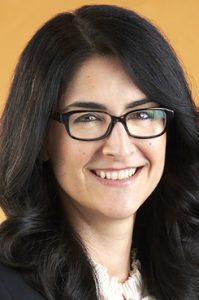 Allison Wein/courtesy photo
Allison Wein/courtesy photoDescribe how you feel about your career now that you've made partner. Excited. Inspired. Humbled. As an associate, I worked hard to become a partner, so it is exciting to reach this milestone and have that hard work recognized. Once you make partner, you are rewarded with more responsibility, but you are also reminded just how much learning you still have to do. As a partner at Cravath, I have an incredible platform for taking on a leadership role in the kinds of important, complex deals on behalf of clients that drew me into M&A in the first place.
What's the key to successful business development? I think it's to the benefit of Cravath associates that new business generation is not expected of you. Your entire focus is on learning to become a great lawyer. Now, I am much more involved in business development, which is exciting. I think a critical component, particularly for more junior partners, is providing excellent work product and delivering thoughtful and tailored legal advice, which builds client trust and makes it more likely that a client will call you for the next deal. I also believe that being honest, forthright and simply myself in dealing with clients and potential clients helps to develop long-lasting relationships.
What's been the biggest day-to-day change since becoming partner? The biggest day-to-day change is that I now get to see all the work that goes into the business of running the firm. I love M&A because there are so many moving pieces and parts of a deal. Every deal is entirely unique, which keeps things interesting, and there's a parallel when you think about the complicated machinery involved in operating a firm. In terms of actual legal work, the biggest difference is that I have to delegate a lot more than I did as an associate. As a partner, your work is much broader, and, in that sense, you have more to stay on top of and you can't do everything yourself. In practice, that means that I have to identify and prioritize the aspects of a transaction that are most important.
Who had the greatest influence in your career that helped propel you to partner? Cravath's rotation system does a fantastic job of letting you see different leadership styles and different personalities. It gives you the tools to see what can work for you as an individual, and what would never work for you, but might work for someone else. It helps you understand that there are many different ways to be a great lawyer, and Cravath as a firm really encourages that. During my time as an associate, I had the great fortune to work with, and be supported by, so many talented and compassionate people. That said, Faiza Saeed has, hands down, had the greatest influence on my career. I admire not only her incredible talent as a lawyer but also her ability to build relationships and trust with clients. She had been a fantastic role model and mentor to me.
What's the best piece of advice you could give an associate who wants to make partner? Focus on your work and take ownership over everything you do. Spend the time investing in becoming an expert in your subject matter, keep up with the industry and show through your hard work that you're hungry, resilient and a team player. The other thing that is really important is developing relationships and taking the time to really connect with people, including your peers and associates more junior than you. Personal connections make work much more enjoyable and the people with whom you develop those connections also become your greatest resource as your sounding board, or your mentor or champion.
It's also vital to make time for things you care about beyond law and business. Part of being a good lawyer is devoting a lot of time to your work, but it's important to have time to refresh, to take a step back and spend time with your family or friends or with whatever hobbies you have outside of the office. For me, prioritizing spending time with my husband and two young daughters keeps me focused and efficient during the workday.
This content has been archived. It is available through our partners, LexisNexis® and Bloomberg Law.
To view this content, please continue to their sites.
Not a Lexis Subscriber?
Subscribe Now
Not a Bloomberg Law Subscriber?
Subscribe Now
NOT FOR REPRINT
© 2025 ALM Global, LLC, All Rights Reserved. Request academic re-use from www.copyright.com. All other uses, submit a request to [email protected]. For more information visit Asset & Logo Licensing.
You Might Like
View All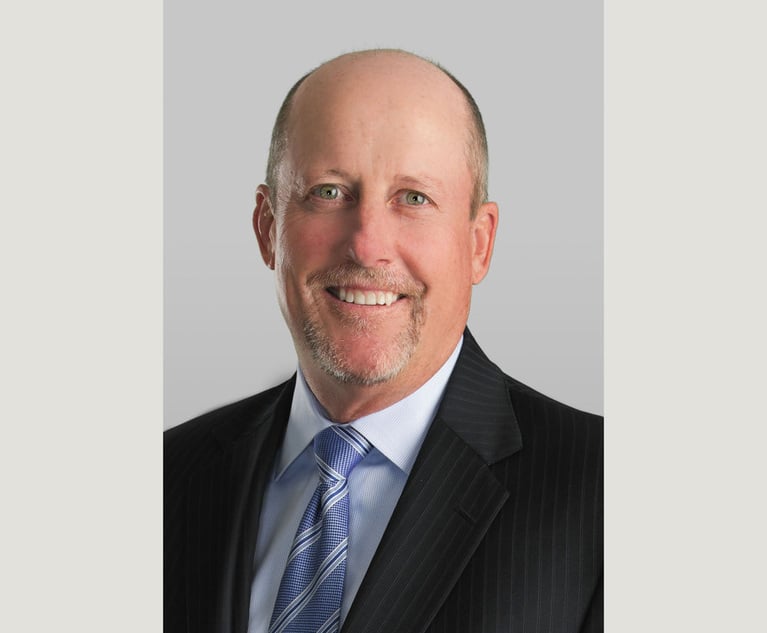
How I Made Managing Partner: 'Be the Uniting Voice of the Firm,' Says George Ogilvie of McDonald Carano
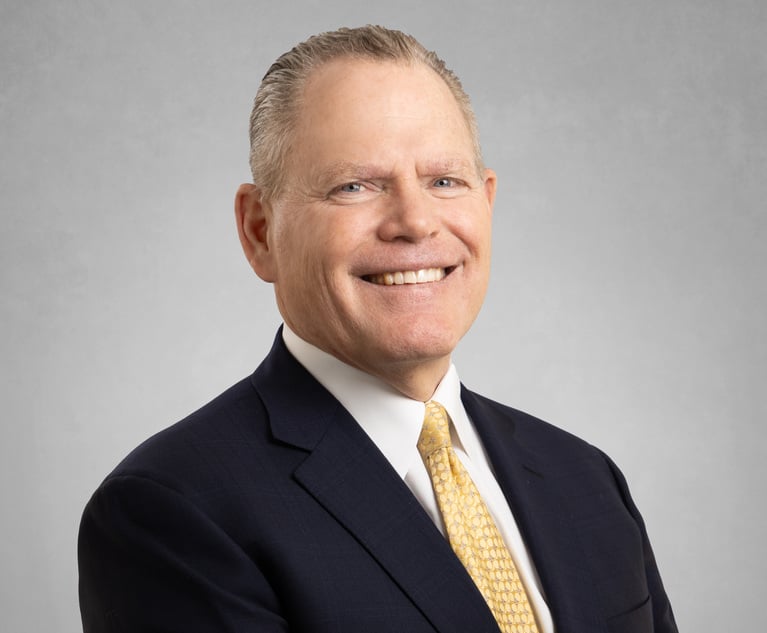
How I Made Managing Partner: 'Educate Yourself About Law Firm Economics,' Says Gregory Hessinger of Mitchell Silberberg
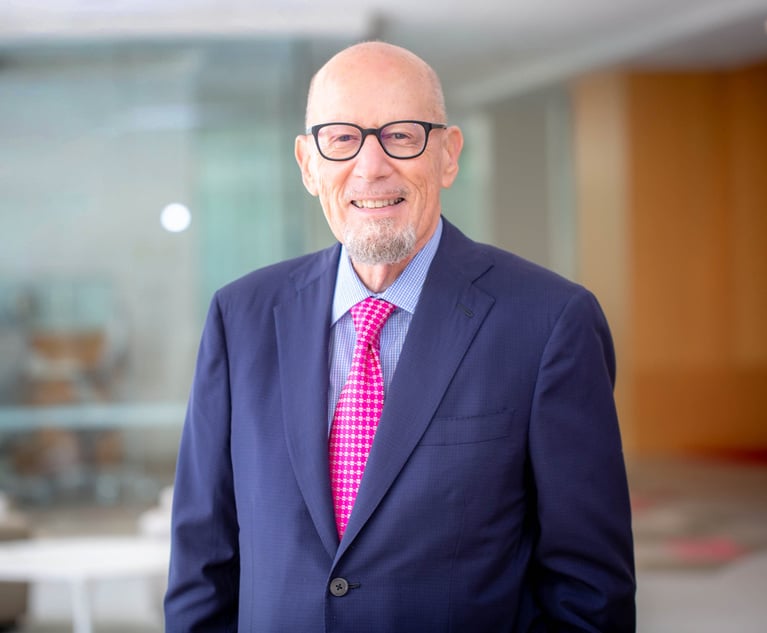
Cozen O'Connor's Bernard Nash Pioneered the Modern State AGs Practice. Now He's Hanging Up His Boots
6 minute readTrending Stories
- 1Uber Files RICO Suit Against Plaintiff-Side Firms Alleging Fraudulent Injury Claims
- 2The Law Firm Disrupted: Scrutinizing the Elephant More Than the Mouse
- 3Inherent Diminished Value Damages Unavailable to 3rd-Party Claimants, Court Says
- 4Pa. Defense Firm Sued by Client Over Ex-Eagles Player's $43.5M Med Mal Win
- 5Losses Mount at Morris Manning, but Departing Ex-Chair Stays Bullish About His Old Firm's Future
Who Got The Work
J. Brugh Lower of Gibbons has entered an appearance for industrial equipment supplier Devco Corporation in a pending trademark infringement lawsuit. The suit, accusing the defendant of selling knock-off Graco products, was filed Dec. 18 in New Jersey District Court by Rivkin Radler on behalf of Graco Inc. and Graco Minnesota. The case, assigned to U.S. District Judge Zahid N. Quraishi, is 3:24-cv-11294, Graco Inc. et al v. Devco Corporation.
Who Got The Work
Rebecca Maller-Stein and Kent A. Yalowitz of Arnold & Porter Kaye Scholer have entered their appearances for Hanaco Venture Capital and its executives, Lior Prosor and David Frankel, in a pending securities lawsuit. The action, filed on Dec. 24 in New York Southern District Court by Zell, Aron & Co. on behalf of Goldeneye Advisors, accuses the defendants of negligently and fraudulently managing the plaintiff's $1 million investment. The case, assigned to U.S. District Judge Vernon S. Broderick, is 1:24-cv-09918, Goldeneye Advisors, LLC v. Hanaco Venture Capital, Ltd. et al.
Who Got The Work
Attorneys from A&O Shearman has stepped in as defense counsel for Toronto-Dominion Bank and other defendants in a pending securities class action. The suit, filed Dec. 11 in New York Southern District Court by Bleichmar Fonti & Auld, accuses the defendants of concealing the bank's 'pervasive' deficiencies in regards to its compliance with the Bank Secrecy Act and the quality of its anti-money laundering controls. The case, assigned to U.S. District Judge Arun Subramanian, is 1:24-cv-09445, Gonzalez v. The Toronto-Dominion Bank et al.
Who Got The Work
Crown Castle International, a Pennsylvania company providing shared communications infrastructure, has turned to Luke D. Wolf of Gordon Rees Scully Mansukhani to fend off a pending breach-of-contract lawsuit. The court action, filed Nov. 25 in Michigan Eastern District Court by Hooper Hathaway PC on behalf of The Town Residences LLC, accuses Crown Castle of failing to transfer approximately $30,000 in utility payments from T-Mobile in breach of a roof-top lease and assignment agreement. The case, assigned to U.S. District Judge Susan K. Declercq, is 2:24-cv-13131, The Town Residences LLC v. T-Mobile US, Inc. et al.
Who Got The Work
Wilfred P. Coronato and Daniel M. Schwartz of McCarter & English have stepped in as defense counsel to Electrolux Home Products Inc. in a pending product liability lawsuit. The court action, filed Nov. 26 in New York Eastern District Court by Poulos Lopiccolo PC and Nagel Rice LLP on behalf of David Stern, alleges that the defendant's refrigerators’ drawers and shelving repeatedly break and fall apart within months after purchase. The case, assigned to U.S. District Judge Joan M. Azrack, is 2:24-cv-08204, Stern v. Electrolux Home Products, Inc.
Featured Firms
Law Offices of Gary Martin Hays & Associates, P.C.
(470) 294-1674
Law Offices of Mark E. Salomone
(857) 444-6468
Smith & Hassler
(713) 739-1250




